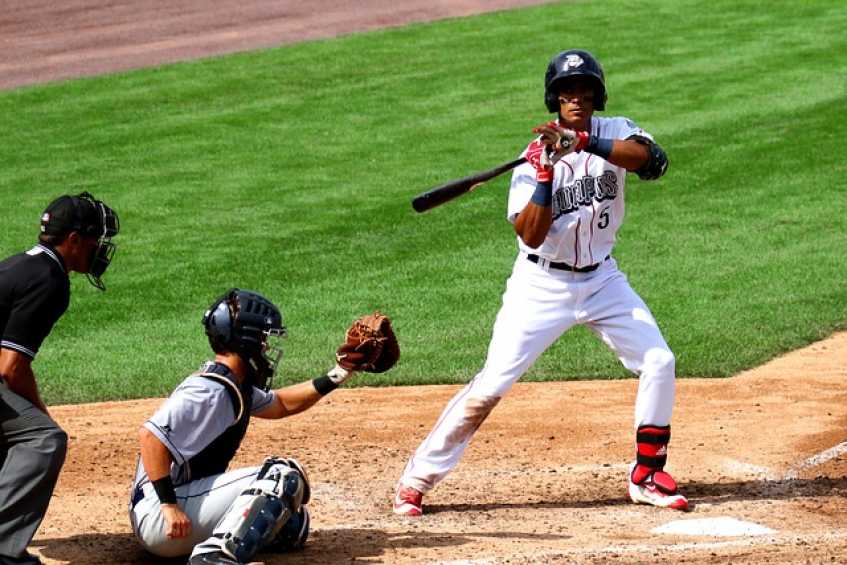
What is a fielder's choice in baseball? This common baseball term can be a bit confusing to those who are new to the game, but it's an important concept to understand. In baseball, a fielder's choice is a play in which a defensive player has the option to make a play on either the batter or a baserunner, and chooses to try to make an out on the baserunner instead.
Fielder's choices are often used as a strategic defensive play, as it can be difficult to make a play on a speedy baserunner who is already in motion. But what are the specifics of a fielder's choice? How is it recorded in the scorebook? And does it affect a batter's statistics? In this post, we'll dive into everything you need to know about fielder's choices in baseball.
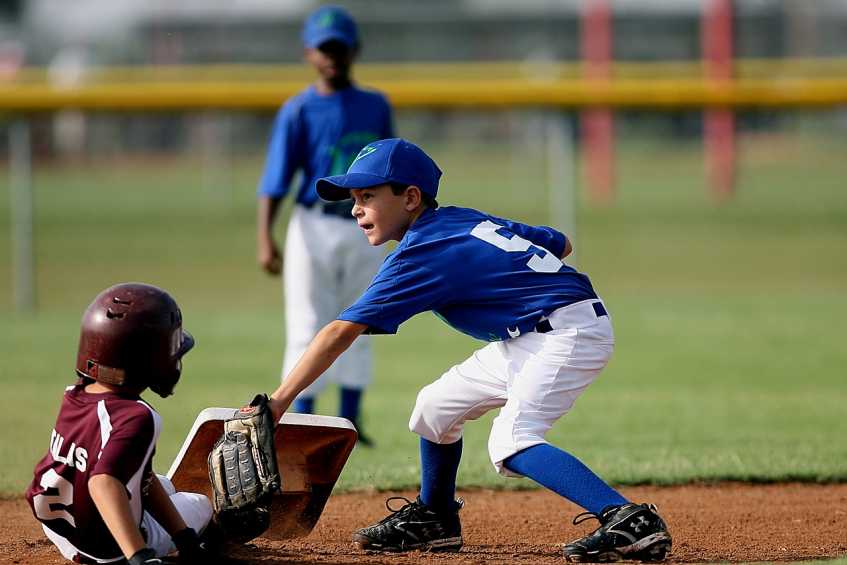
A fielder's choice is a common term used in baseball to describe a play that occurs when a fielder chooses to make a play on a base runner rather than the batter. It typically happens when there are runners on base and the batter hits the ball, but it is not caught by a fielder. The fielder then has the option to either throw the ball to first base to try to get the batter out, or to throw it to another base to try to get a runner out. If the fielder decides to throw to another base, the batter is not credited with a hit, but rather a fielder's choice.
There are several scenarios in which a fielder's choice can occur. One common scenario is when there is a runner on first base and the batter hits a ground ball to the infield. The fielder can choose to throw the ball to second base to try to get the lead runner out, while the batter makes it safely to first. In this scenario, the batter is not credited with a hit, but rather a fielder's choice.
Another scenario is when there are runners on second and third base, and the batter hits a ground ball to the shortstop. The shortstop can choose to throw the ball to third base to try to get the runner out, while the batter makes it safely to first. In this scenario, the batter is again not credited with a hit, but rather a fielder's choice.
Fielder's choices can happen in a variety of other situations as well, such as when a runner is stealing or when the ball is hit deep in the outfield. The key factor is that the fielder has the choice to make a play on a runner instead of the batter.
To illustrate, let's consider an example of a typical scenario in which a fielder's choice might occur. Imagine a runner on first base and the batter hits a ground ball to the shortstop. The shortstop has the option to throw the ball to second base to try to get the runner out, while the batter reaches first base safely. In this case, the batter would be credited with a fielder's choice, not a hit, because the fielder chose to make a play on the runner instead of the batter.
The term "Fielder's Choice" has been used in baseball since the late 1800s, but its origin is unclear. One theory is that it was originally a military term, used to describe a soldier's decision to select one target over another. In baseball, the term refers to a defensive player's decision to record an out at a base other than the one the batter-runner is headed for. Essentially, the defensive player has the choice of trying to make the out at the base the runner is headed for, or at another base where a different runner is located, and chooses the latter. This decision often arises when there is more than one runner on base, and the defensive player is attempting to prevent a run from scoring.
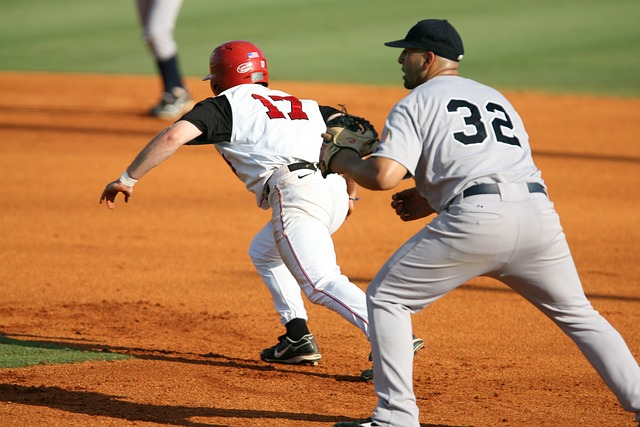
When a Fielder's Choice occurs, it is important for the scorekeeper to accurately record it in the box score. Generally, a Fielder's Choice is recorded by placing the player who hit the ball in the "AB" column, with a small "FC" written in the "RBI" column. If there was an out made on the play, the player who made the out is written in the "Outs" column. If a run scored on the play, it is recorded in the "Runs" column.
For example, let's say there is a runner on first base with one out. The batter hits a ground ball to the shortstop, who decides to throw to second base to try to get the lead runner out. The throw is successful, and the runner at second base is out, but the batter is safe at first. In this case, the scorekeeper would record the play as a Fielder's Choice for the batter, with the shortstop credited with the putout in the "Outs" column. If the runner who was at third base before the play scored, the run would be credited to the team in the "Runs" column.
A Fielder's Choice can occur in various situations during a baseball game, and it can often have a significant impact on the outcome of the game. Here are a few examples of famous instances where a Fielder's Choice played a significant role:
Game 7 of the 2016 World Series
In the top of the tenth inning, the Chicago Cubs had a runner on first base with two outs when the batter hit a ground ball to the Cleveland Indians' third baseman. The third baseman threw the ball to the second baseman, who was covering second base, but the Cubs' runner was able to beat the throw and reach second base safely. The second baseman then threw the ball to first base in an attempt to get the batter out, but he was safe at first. The play was scored as a Fielder's Choice, and the Cubs' runner on second base was able to score the go-ahead run on the next batter's hit.
Game 6 of the 2011 World Series
In the bottom of the ninth inning with the game tied, the Texas Rangers had runners on first and second base with one out. The batter hit a ground ball to the St. Louis Cardinals' second baseman, who fielded the ball and threw it to the shortstop covering second base in an attempt to get the lead runner out. The shortstop dropped the ball, but was able to pick it up and throw it to first base to get the batter out. The play was scored as a Fielder's Choice, and the Rangers' runner on second base was unable to advance to third base. The Cardinals were able to get out of the inning and win the game in the 11th inning.
1992 National League Championship Series
In Game 7 of the NLCS, the Atlanta Braves had the bases loaded with one out when the batter hit a ground ball to the Pittsburgh Pirates' third baseman. The third baseman threw the ball home to try to get the runner out, but he was safe at the plate. The catcher then threw the ball to first base in an attempt to get the batter out, but he was safe at first. The play was scored as a Fielder's Choice, and the Braves' runner on third base was able to score the winning run.
These are just a few examples of how a Fielder's Choice can play a crucial role in the outcome of a game.
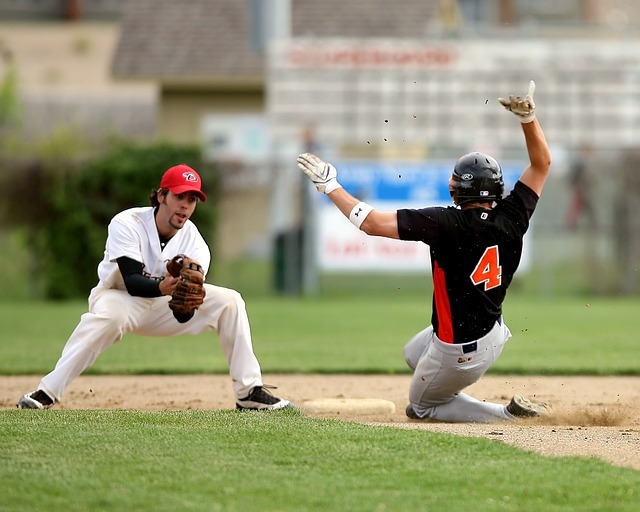
A double play and a Fielder's Choice are two related but distinct concepts in baseball. At their core, both are about getting outs, but they differ in terms of how they're executed and what the resulting play looks like.
A double play involves two outs being recorded on a single play. This typically happens when there are runners on base and the defense is able to get two outs before the runners are able to advance. The most common type of double play is the 6-4-3 (shortstop-second baseman-first baseman) double play, but there are many other possible combinations.
In contrast, a Fielder's Choice involves a fielder choosing to record an out at one base rather than attempting to get an out at another base. For example, if there's a runner on first base and a ground ball is hit to the third baseman, he may choose to throw the ball to second base to record the force out rather than attempting to throw out the batter at first base. In this scenario, the batter is not credited with a hit because the fielder chose to record an out at second base instead of first base.
The main difference between a double play and a Fielder's Choice is that in a double play, two outs are recorded on a single play, while in a Fielder's Choice, only one out is recorded. Additionally, a double play is typically initiated by the defense, while a Fielder's Choice is initiated by the offense.
The outcome of a play can change depending on whether a Fielder's Choice or double play is executed. For example, if there are runners on first and second with no outs, and a ground ball is hit to the shortstop who throws to second to get the force out, the batter is credited with a Fielder's Choice. If the second baseman then throws to first base to complete the double play, the batter is not credited with a hit and two outs are recorded. However, if the second baseman is unable to turn the double play and only gets the out at second, then the batter is still credited with a Fielder's Choice, but only one out is recorded.
Defensive players may choose to execute a Fielder's Choice rather than attempting another play in order to increase their chances of getting at least one out. One common scenario in which a Fielder's Choice might be used is when there is a runner on first base and a ground ball is hit to an infielder. The infielder might choose to throw the ball to second base in an attempt to get the lead runner out, rather than throwing to first base to attempt a double play.
In some cases, the runner on first base may be fast or have a significant lead, making it difficult for the infielder to get him out at second base. In these situations, the infielder may opt to throw the ball to first base instead, allowing the runner on first base to advance to second base safely. This play would be recorded as a Fielder's Choice in the scorebook.
Defensive players may also choose to execute a Fielder's Choice when they have a better chance of getting a single out rather than risking a more difficult play, such as an attempted double play that could result in no outs being recorded. In these situations, the player might choose the safer option of getting at least one out rather than risking an unsuccessful play.
Ultimately, the decision to execute a Fielder's Choice over another play depends on a variety of factors, including the speed and position of the runners, the fielder's throwing ability and accuracy, and the situation in the game. By making strategic decisions about when to use a Fielder's Choice, defensive players can increase their chances of success on the field.
In baseball, an RBI, or run batted in, is a statistic awarded to a batter when a run is scored as a result of their plate appearance. But can a hitter receive an RBI on a Fielder's Choice play? The answer is yes, but there are certain conditions that must be met.
According to the official MLB rulebook, a batter is credited with an RBI if, "in the official scorer's judgment, the run would not have scored but for the batters' actions." This means that if a runner scores as a direct result of a Fielder's Choice, and the official scorer determines that the run would not have scored without the batter's hit, the batter will receive an RBI.
For example, let's say there are runners on first and third base with one out. The batter hits a ground ball to the shortstop, who decides to throw to second base to try and get the runner out, but the runner on third scores before the second baseman can throw the ball to first to complete the double play. In this scenario, the batter would receive an RBI because the run would not have scored without their plate appearance.
It's important to note that not all Fielder's Choices result in RBIs for the batter. If a runner scores on a Fielder's Choice due to an error by the defensive team rather than a decision made by the fielder, the batter will not receive an RBI. Additionally, if the official scorer determines that the run would have scored regardless of the batter's hit, no RBI will be awarded.
While it's not uncommon for batters to receive RBIs on Fielder's Choice plays, it is less frequent than RBIs awarded for hits or sacrifice flies. Nevertheless, Fielder's Choices can still contribute to a team's offensive output and play a significant role in the outcome of a game.
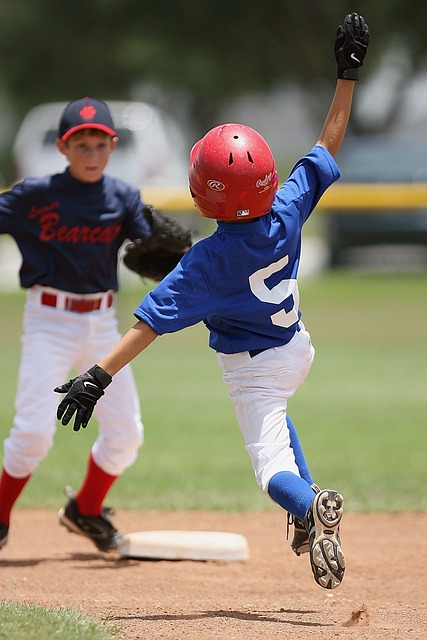
Yes, a Fielder's Choice is considered an at-bat and is recorded in a player's statistics as such. Therefore, a Fielder's Choice does count against a player's batting average.
In some cases, a Fielder's Choice might negatively impact a player's batting average. For example, if a player hits the ball hard but a fielder chooses to get the out at first base instead of trying for a more difficult play at another base, the player will not be credited with a hit and their batting average will decrease. However, if the runner on base advances to score a run, the player can still be credited with an RBI even if their batting average is not impacted positively.
It is worth noting that a player can also be credited with a sacrifice if the Fielder's Choice results in a runner advancing to the next base. In this case, the at-bat is not counted against the player's batting average.
Additional Reading: What is a Good Batting Average in Baseball?
A Fielder's Choice is not considered a hit because the batter did not hit the ball in a way that resulted in them reaching base safely. Instead, they made an out but allowed a baserunner to advance.
No, a Fielder's Choice does not always result in an out. If the defense attempts to get a runner out and fails, but another runner is forced out in the process, then it is still considered a Fielder's Choice, but not an out.
No, a Fielder's Choice is not considered an error. An error occurs when a fielder makes a misplay or error in judgment that allows a batter or baserunner to reach base safely.
Yes, a Fielder's Choice counts toward a player's OBP because they were responsible for a baserunner advancing even though they did not reach base themselves.
Yes, a Fielder's Choice can result in multiple RBIs for a hitter if there are multiple baserunners on and they all advance on the play.
No, a Fielder's Choice can only occur when there is at least one baserunner on base.
In conclusion, a Fielder's Choice is a commonly used term in baseball that refers to a strategic play made by a defensive player when multiple runners are on base. It is an important part of the game and can have a significant impact on the outcome of a play and even a game.
We learned that a Fielder's Choice is an at-bat and counts against a player's batting average, but can also result in an RBI in certain situations. We also discussed how it differs from a double play and why defensive players may choose to make a Fielder's Choice over another option.
Overall, understanding the concept of a Fielder's Choice is crucial for both players and fans of the game. Whether you're watching a game at home or playing on the field, knowing how and when a Fielder's Choice can occur can make all the difference.
Chris Sloan is a former baseball league commissioner and travel baseball coach who has made significant contributions to the sport. In 2018, he founded selectbaseballteams.com, a website that helps parents find youth and travel baseball teams in their local areas. Since its launch, the website has experienced impressive growth, offering a wealth of resources including teams, news, tournaments, and organizations. Chris's unwavering passion for baseball and his innovative approach to connecting parents with quality baseball programs have earned him a respected reputation in the baseball community, solidifying his legacy as a leading figure in the world of youth and travel baseball.
There are 0 comments on "What is a Fielder's Choice in Baseball?"
chandler allen says:
"Hi my name is chandler, i’ve enjoyed..."
On Wanting to tryout for summer ball. as an 18 year old
david graham says:
"With no current MLB team in Canada,..."
On With no current MLB team in
Charles Chavez says:
"To All Coaches: Do you have13U or..."
On Looking for Games